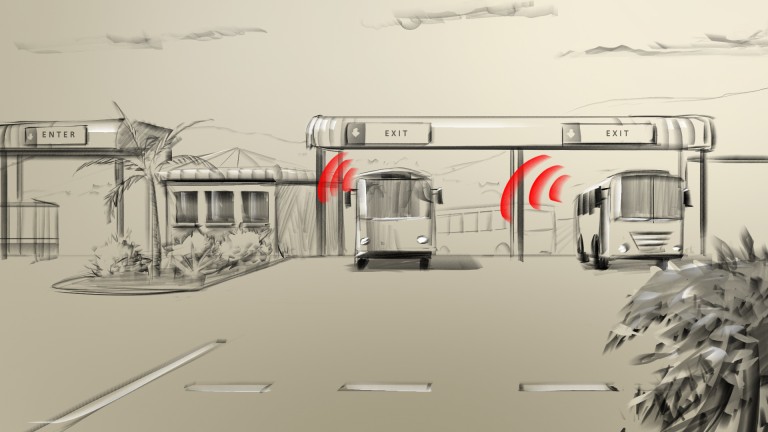METhoD: a Framework for the Emulation of a Delay Tolerant Network Scenario for Media-Content Distribution in Under-Served Regions
In our project, public commuter buses carrying WLAN-enabled devices (mobile infostations) that provide DTN connectivity are used to ferry data between urban and rural areas.
January 31, 2017
Book Chapter: River Publisher, indexed by Web of Science Book Citation Index (BkCI) 2017
Authors
Adriano Galati (Disney Research)
Sandra Siby (Disney Research/ETH Joint Semester Thesis)
Theodoros Bourchas (Disney Research)
Maria Olivares (Disney Research)
Stefan Mangold (Disney Research
Thomas Gross (ETH Zurich)
METhoD: a Framework for the Emulation of a Delay Tolerant Network Scenario for Media-Content Distribution in Under-Served Regions
Wireless communication remains to be the most efficient way of providing access to information to users in developing economies. We are interested in Delay-Tolerant Networks (DTNs) for distributing multimedia content to microentrepreneurs in under-served rural areas of South Africa. In our project, public commuter buses carrying WLAN-enabled devices (mobile infostations) that provide DTN connectivity are used to ferry data between urban and rural areas. Before the actual deployment in the field, rigorous lab experiments have been performed to study the performance of the proposed network design. Such an activity is time-consuming and requires arduous preparation. Simulators, while convenient, do not provide the most realistic results. Given the complexity of DTN testing, we try to find a middle ground approach by building a mobility emulator testbed, which we use to emulate the network scenario. In this paper, we outline the design and implementation details of the network emulator. We then describe the experiments that were performed to study the impact of different network dynamics on content delivery, and their results. The results from the experiments are used to improve our current network design.

